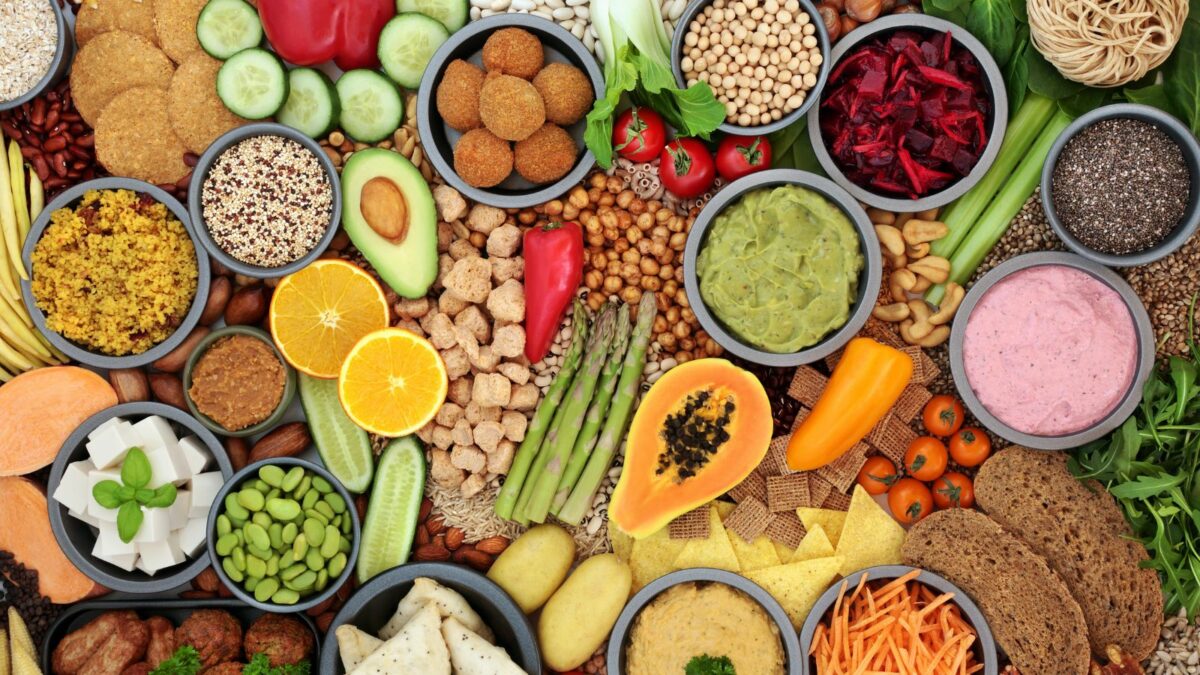The Vegan Lifestyle is about making conscious choices that align with the belief in animal rights, environmental sustainability, and personal health. It’s about understanding the impact of our choices and making decisions that reflect our values. Whether you’re considering going vegan or simply curious about this lifestyle, there’s a lot to learn and explore.
Vegan Lifestyle
When approaching the Vegan Lifestyle, one cannot overlook its foundation – ethical choices. These choices mainly revolve around animal welfare and rights, environmental sustainability, and personal health concerns. A transition to veganism pushes individuals to reassess their regular consumption habits, taking into account the broader impacts of their choices.
Animal welfare and rights form a crucial aspect of these ethical choices. This priority stems from the critical belief that all living beings deserve respect and freedom from unnecessary suffering. Many people choose a Vegan Lifestyle because they’re uncomfortable with the idea of their dietary choices leading to animal suffering. It extends past dietary decisions, also influencing choices related to clothing, personal care products, and entertainment options. Many vegans avoid leather, fur, or products tested on animals due to the cruelty inflicted during their production.
Veganism and Environmental Impact
Another vital component of the ethical choices tied to a Vegan Lifestyle is the pursuit of environmental sustainability. It’s clear that animal agriculture heavily contributes to climate change, deforestation, and water pollution. By choosing a Vegan Lifestyle, individuals significantly lower their personal environmental footprint. These decisions often correlate with other sustainable practices, such as reducing waste, conserving water, and embracing renewable energy sources.
Health Conscious Choices
Health-conscious decisions also factor in the realm of ethical practices. While veganism isn’t inherently healthy, it can improve one’s health if done right. Incorporating more plant-based foods results in a diet high in fibre, antioxidants, and other essential nutrients. These robust dietary habits can reduce the risk of diseases like heart disease, high blood pressure, and type 2 diabetes.
Health Benefits of Embracing Veganism
While the planet benefits widely from veganism, those who follow this lifestyle also reap numerous health rewards. A major boon to vegan diets is that they are typically lower in saturated fats and cholesterol. This is because these nutrients are most commonly found in animal products, which vegans don’t consume. As a result, vegans often have lower blood pressure and cholesterol levels.
Research from the American Heart Association states that vegetarians, which includes vegans, are less likely to suffer from heart disease. The organisation’s data also points to a decrease in the potential for stroke and obesity among this group. Moreover, it’s noted that the vegan diet usually features high amounts of fruits, vegetables, and fibre – all of which have been linked to lower risks of certain cancers.
Moving on to the prevention of chronic diseases, plant-based diets have shown promise in controlling or even reversing conditions like type 2 diabetes. Studies indicate this is due to high fibre intake, which slows down the absorption of sugars, stabilises blood sugar levels, and reduces the need for insulin.
Making the Transition to a Vegan Lifestyle
Adopting a Vegan Lifestyle isn’t just a diet change; it’s a complete lifestyle shift. To make the transition smoother, one can take a phased approach, starting with small, manageable changes. Meatless Monday is a global movement encouraging people to skip meat one day per week, and this can be an excellent first step toward a Vegan Lifestyle.
Individuals may worry about missing out on their favourite meals. However, many well-loved dishes can be made vegan with some creativity and recipe tweaks. Portobello mushrooms make a great substitute for steaks and burgers. Lentils and beans can replace meat in hearty stews or chilies. Vegan cheeses, available in most grocery stores, can help bridge the gap for cheese lovers.
Investing in a good cookbook or seeking out online vegan cooking channels can also provide dietary inspiration, especially for beginners. It’s important to know that it’s okay to have slip-ups along the way — the goal is progress, not perfection. Taking the time to explore different foods, learn new cooking techniques, and try out new recipes can turn the transition into an exciting culinary adventure.
Moreover, they’ll find that aside from health benefits, Vegan Lifestyle also contributes to the reduction in environmental harm, making it more than just about personal health. As the journey unfolds, they’ll discover that the benefits of veganism are far-reaching, challenging them to redefine their relationship with food in the most unexpected ways.
